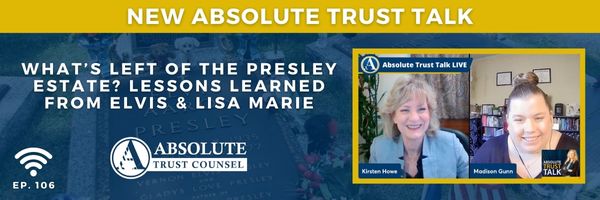Transfer on Death (TOD) deeds gained legal recognition in 2016 as a means of transferring real property outside of probate in California. Since then, TOD deeds have emerged as a popular estate planning tool, offering a streamlined alternative to probate for transferring real estate assets.
A TOD deed is a legal document that allows real property owners to designate beneficiaries who will inherit their real estate upon their death without probate. Essentially, it functions as a vehicle for transferring property directly to named beneficiaries upon the owner’s death. While TOD deeds have their advantages, particularly in terms of simplicity and probate avoidance, it is essential to recognize that TOD deeds also come with significant drawbacks, discussed in turn below.
- Limited Applicability: Not all types of real property are eligible for transfer via TOD deeds in California. Property held in joint tenancy or community property with the right of survivorship may not qualify, limiting the utility of TOD deeds for certain individuals.
- Legal Complexities: TOD deeds must comply with specific legal requirements to be valid and enforceable. Any errors or ambiguities in the deed could potentially lead to disputes or challenges, requiring costly legal intervention to resolve. For example, TOD deeds have a unique requirement that the deeds must be signed by two witnesses in addition to a notary public. Failure to comply with these requirements would render the TOD deed ineffective and frustrate the property owner’s intent to transfer the property to a specific individual.
- Lack of Planning Opportunities: Unlike wills or trusts, TOD deeds do not provide detailed instructions regarding the distribution of assets. While this simplicity can be appealing, it also means that TOD deeds may not accommodate complex estate planning goals, such as strategic tax planning, or provide for individuals with unique needs, such as minor beneficiaries or individuals with special needs. Additionally, a TOD deed does not provide for contingencies if the intended beneficiary predeceases the property owner. In this event, the property will become part of the owner’s probate estate upon his or her death and may pass to a beneficiary that the owner did not want to receive it unless a will or trust provides for an alternate disposition.
- Potential for Disputes: Disputes among beneficiaries or challenges to the validity of the TOD deed can arise. Ambiguities in the deed, conflicting claims from heirs, or allegations of undue influence can result in legal disputes, delaying the process and undermining the intended efficiency of TOD deeds.
- Beneficiary Liability: A beneficiary named in a TOD deed becomes personally liable for the property owner’s unsecured debts up to the value of the property received. This result may have been unintended by the owner and as an unpleasant surprise to the beneficiary.
While transfer-on-death deeds offer a convenient alternative to probate for individuals seeking simplicity in estate planning, it is essential to recognize their limitations and potential pitfalls. In California, property owners should carefully evaluate the drawbacks of TOD deeds and consider alternative estate planning strategies to ensure the protection of their assets for themselves and their beneficiaries.
If you are considering using a TOD deed to transfer real estate upon your death, it is crucial that you seek the advice of an experienced estate planning attorney to ensure that the deed is properly drafted and executed.
[AD] Estate planning addresses many important factors about your future and legacy. Where do you get started if you don’t have an estate plan in place? If you do, how have new laws and life transitions changed? Will your plan still protect you? Regardless, you deserve to have control over your wants, needs, goals, and hopes for the future. We can help you understand your options and, legally, how you will best be protected at all touchpoints. Get started today by scheduling a free discovery call so we can discuss your needs. Visit https://absolutetrustcounsel.com/scheduling/ or call us at (925) 943-2740.


